"How long does it take for the brain to recover?" MCW researchers studying WI athletes and concussions
MILWAUKEE -- Football is perhaps the most popular sport in America. But for years, a debate has been raging about the danger of head injuries. Researchers at the Medical College of Wisconsin are focused on improving how concussions are diagnosed and treated.
They're football players with big dreams of going pro. Some are already linked to the NFL -- but not for what you might think.
Luke Hardginski suits up for Wisconsin Lutheran College on Saturdays.
"I play outside linebacker," said Hardginski.
The school is so small, the football team alone almost makes up 10% of the student population. But it's not their feats on the field that make Wisconsin Lutheran College's athletes so valuable when it comes to America's most powerful sports league. Rather, it's what's inside their helmets.
More than 2,000 Milwaukee area high school and college athletes, including Hardginski, have been recruited by researchers at the Medical College of Wisconsin.
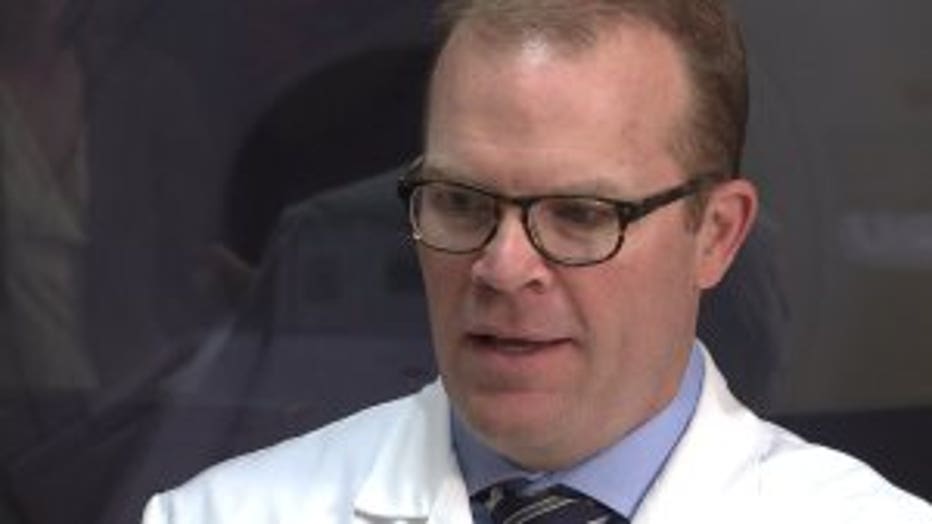
Dr. Michael McCrea, the director of brain injury research at the Medical College of Wisconsin
"It takes a small army to pull this off," said Dr. Michael McCrea, the director of brain injury research at the Medical College of Wisconsin.
The goal is to better understand the science behind concussions and what it truly takes to recover from one.
"That science will have translational impact in how we manage athletes clinically and ensure that they return to play in the safest way possible," said Dr. McCrea.
It's common knowledge that a blow to the head or violent whiplash can jolt your brain, causing it to smack into the inside of your skull, resulting in a concussion. That can lead to bleeding in or around the brain, and a mix of other symptoms. The tricky part is determining when the brain is ready to return to play.
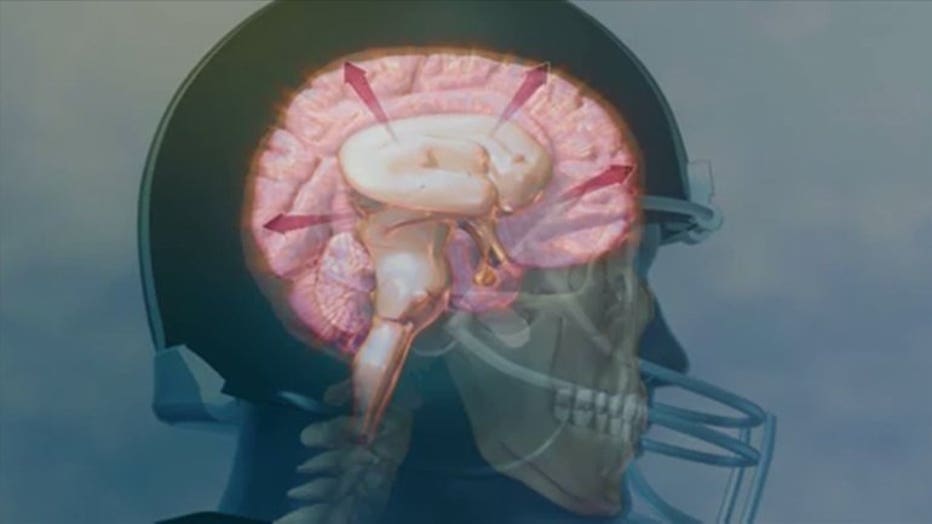
Concussion
"We`re studying how long does it take for the athlete to recover, but we`re also now able to study how long does it take for their brain to recover?" said Dr. McCrea.
And that's where Hardginski and his teammates come in.
"I had one (concussion) this past season, in October," said Hardginski.
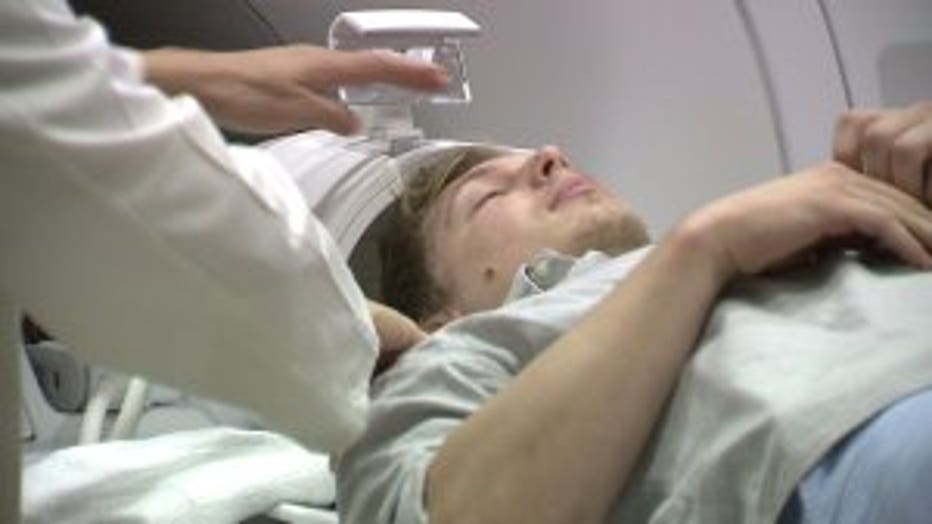
Luke Hardginski
Before the football season started, MCW researchers ran these athletes through a series of exams meant to test things like balance, memory and attention.
And then they went even deeper.
"Our studies have now evolved to us collecting a blood bio specimen to look at protein markers and genetic factors," said Dr. McCrea.
Dr. McCrea says a concussion can set off a cascade of changes in brain chemistry and physiology. They're hoping a trail of those changes and the return to recovery can be tracked with samples of blood proteins and MRI neuoroimages.
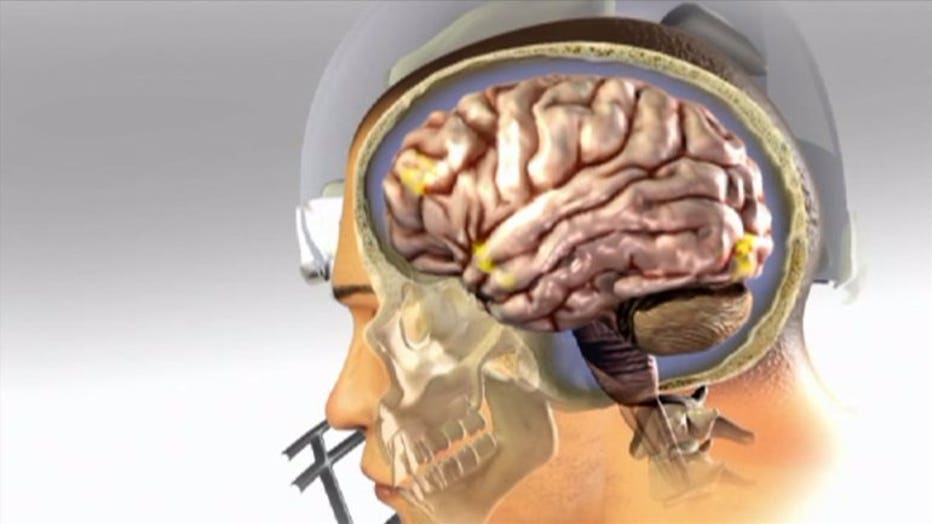
Concussion
"Then we have a much more informed way of managing injuries, guiding return to play management and returning athletes safely without risk," said Dr. McCrea.
Here's how they do it:
Any participating athlete who suffers a concussion is brought back in to be assessed within 24 hours of the injury. They're evaluated again a week to 10 days later, and a third time at the six-month mark.
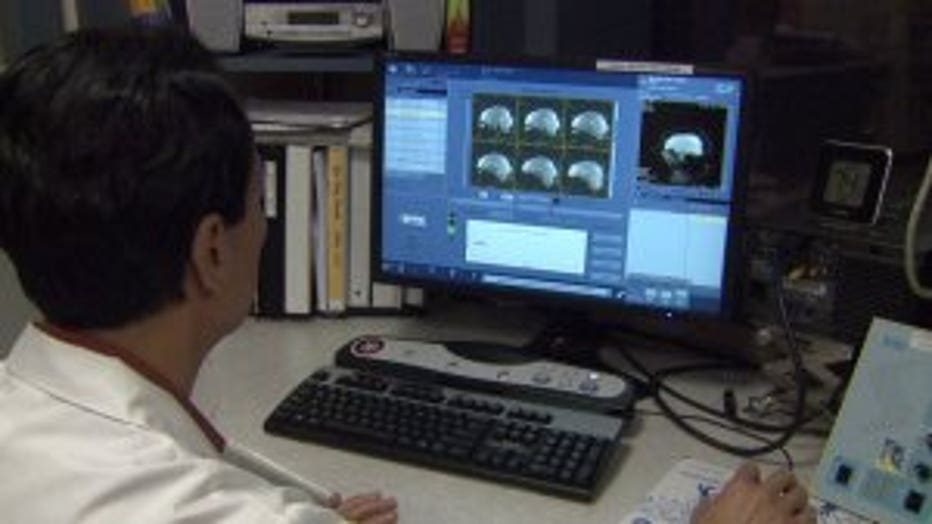
Concussion research
Dr. McCrea says that the one limitation of this particular study "is that we were not able to, based on the available resource, have multiple time points in between seven to 10 days and six months," he said.
The NFL and General Electric are teaming up to foot the bill for the research -- pumping $60 million into the Medical College of Wisconsin and other researchers who are focused on improving how concussions are diagnosed and treated.
The NFL has been waging a public relations battle in recent years on the concussion front. Some former players had accused the league of hiding the dangers of those brain injuries. The league agreed to pay for medical exams and fund research as part of a settlement with those former players.
And of course, GE is a major maker of imaging technology; technology that plays a central role in concussion research.
Those considerations aside, some are optimistic that Dr. McCrea's research will ultimately help make the game safer. When his playing days are over, Hadginski plans to joins the effort, but this time not as a test subject.
"I`m studying neuroscience," said Hardginski. "I wouldn`t mind doing something in concussion research."
This particular study is just one part of larger concussion-related research taking place at the Medical College of Wisconsin. Researchers recently received another award from the NFL and GE to continue its research.
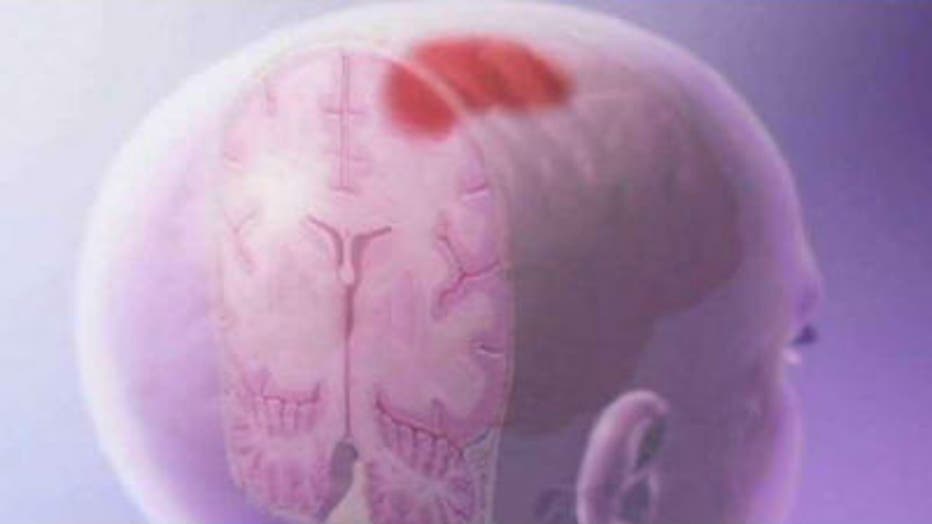
Concussion

